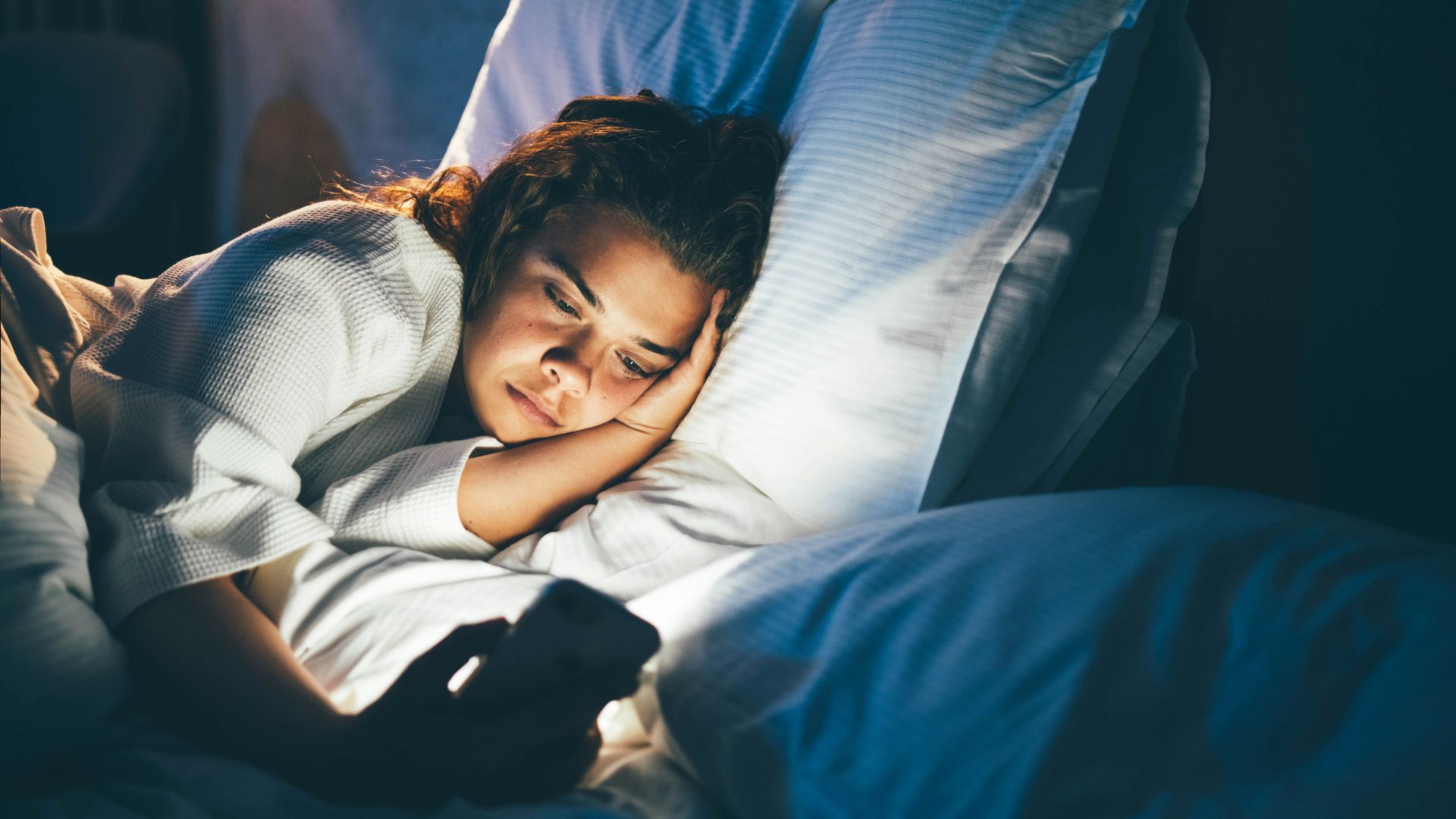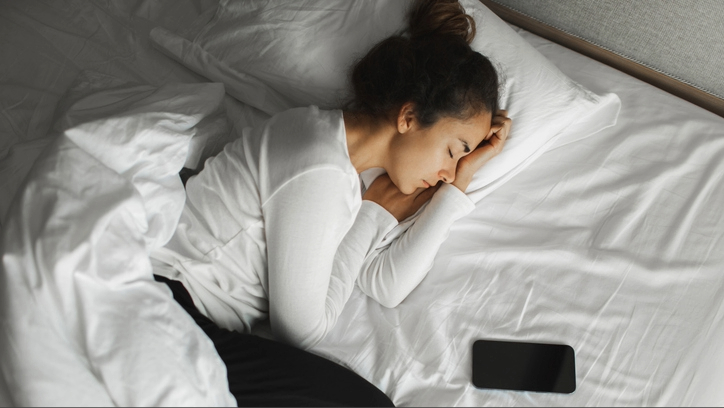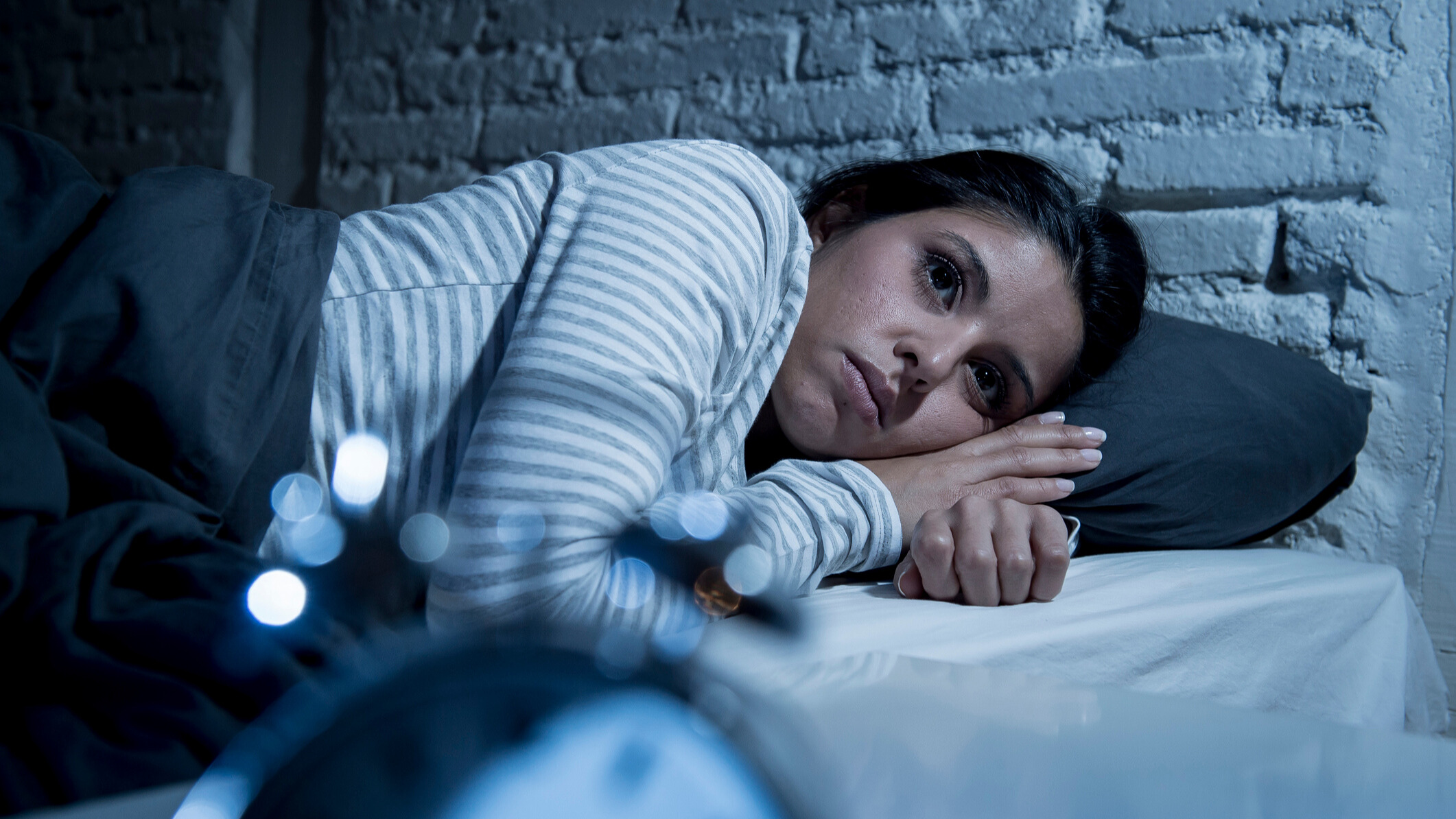I write about sleep for a living and won't let my phone near my bedroom at night — here's why
Doctors explain why switching my phone off an hour before bed is best for my sleep — and my mental health

After an exhausting day, I get comfortable in bed, pick up my phone and allow myself some guilt-free scrolling time.
Suddenly, I’m bombarded with people living in war zones, missiles landing in cities and families being detained. But between each harrowing clip are slightly surreal videos of AI cats, influencers videoing their new product hauls and comedy sketches.
It’s a bizarre and unnerving feeling as my brain tries to navigate the correct emotional response to each three second reel before my finger is swiping upward to the next piece of content.
It’s no surprise that I’m feeling anxious at night and overstimulated when I’m trying to fall asleep
And recently, as the constant news cycle becomes even more deplorable and we’re getting real-time, real-life footage from those at the scene, it has become unbearable.
I can’t help but worry we’re doing real damage to our brains by consuming content in this way, and I’m scared it'll desensitize us to the suffering of others.
But right now, I’m experiencing one consequence of using my phone in this way first-hand. My sleep is struggling. It’s no surprise that I’m feeling anxious at night and overstimulated when I’m trying to fall asleep, and now my dreams are taking a turn for the worse.
So, I’ve decided to ban my phone an hour before bed time. Instead of doomscrolling late into the night, I'm switching it off and banning it from the bedroom. And no, this isn’t burying my head in the sand, it’s simply prioritizing sleep, and therefore, my mental and physical health.
Get instant access to breaking news, the hottest reviews, great deals and helpful tips.
I’ve spoken to Dr. Ola Otulana, a GP and physician, and Dr. Emma Lin, a board-certified Pulmonologist and Sleep Medicine Specialist, to find out about the real impact social media and the constantly-updated news apps have on our sleep and how we can ensure we're getting a good sleep every night.
How constant scrolling ruins our sleep, according to doctors
Causes a hyper-stimulated state

“Flicking through a mix of emotionally charged and often distressing content on Instagram keeps the brain in a hyper stimulated state,” says Dr. Otulana.
“It mimics a state of alertness making it harder for the mind to transition into rest.” So, if your nighttime routine is anything like mine was, I’d recommend ditching social media.
Dr. Lin says that in this state, it's impossible to relax. "Your brain is too busy thinking, reading, responding, scheming," she says. "Sleep is a still brain."
Activates the body’s stress response
“Reading distressing news before bed activates the body’s stress response,” says Dr. Otulana..
Reading distressing news before bed activates the body’s stress response
“It raises your cortisol levels, keeps the sympathetic nervous system engaged, and increases mental arousal,” he adds. Cortisol is the hormone released in the mornings to help wake us up. If this is released at night, the effect can be bad.
“This delays sleep onset, reduces sleep quality, and often leads to fragmented or dream disrupted sleep. The brain essentially stays in a defensive mode rather than shifting into recovery.”
And Dr. Lin has seen this in her patients. “I have seen many insomniacs who don’t realize that their evening activity of reading the newspaper is part of their issue,” she says.
With the availability of 24-hour news on our phones, it’s only going to get worse

Keeps the brain alert and engaged
Why do we love scrolling? Turns out, it’s literally addictive. “When you’re scrolling through all these different posts at a high rate of speed, you’re getting little bits of dopamine to the brain,” explains Dr. Lin.
“That is a brain chemical that makes you feel excited. But too much of that too close to bedtime leaves the brain alert,” she adds.
“It’s like your brain is wired, but your body is tired.”
It’s like your brain is wired, but your body is tired
Dr. Otulana agrees. “Phone use keeps the mind cognitively active as well. Whether you’re reading, reacting, or scrolling, your brain stays alert and engaged,” he says.
“This mental stimulation can delay the natural rise of melatonin and interrupt your body’s circadian rhythm and also increase the likelihood of restless sleep," the doctor adds.
"Even without blue light it is the content and interaction that overstimulate the brain.”
This explains my vivid and disturbing dreams recently and a feeling like I’m ‘on’ all the time. Even when I wake up in the night I’m not groggy, I feel awake instantly.
Delaying the rise in melatonin can make it difficult to fall asleep. You’re less likely to feel naturally tired, and once your circadian rhythm is dysregulated, you can expect energy dips throughout the day, too.

The link between mental health and sleep
At night, we cycle through different sleep stages and each plays an important role in our mental and physical health. REM sleep, the stage in which you dream, helps process emotions and consolidate memory.
Getting enough REM sleep improves our mental resilience which is key for better mental health. If you miss out on this sleep stage, you’re likely to struggle the next day.
But this is also a two-way relationship. Mental health struggles like depression and anxiety can make it difficult to fall asleep and stay asleep, disrupting our sleep cycle and reducing the time we spend in each sleep stage.
Ultimately, this can lead to a cycle of poor sleep and poor mental health that’s hard to break. This is why it’s essential you prioritize your rest and recovery. If you’re already struggling, a stream of over stimulating content isn’t going to help.
Your steps to sleeping better

So, take a leaf out of my book. If you want to keep your phone with you before bed for important messages, mute the notifications from your social media and news apps, or even hide them from your home screen all together.
Turn off news and social media at least an hour before bed
“Turn off news and social media at least an hour before bed,” advises Dr. Otulana. He says to “Replace scrolling with calming activities, reading, taking a warm shower, or gentle stretching.”
Creating a relaxing nighttime routine can be a great way to tell your mind and body it’s time to unwind.
“If your mind is racing, write down your thoughts in a notebook. Creating a consistent, calming bedtime routine helps signal to the body that it’s time to wind down,” the doctor advises.

Lauren is an experienced writer and editor in the health and lifestyle industry and has led many campaigns and projects that deliver news, advice, and research on all things sleep. As the Sleep Features Editor for Tom’s Guide, Lauren writes, commissions and edits sleep and mattress content, from in-depth how-tos in sleep and mattress health to interviews with doctors and neuroscientists on the latest news in sleep. Lauren regularly tests new sleep tech and accessories to evaluate their effectiveness for getting good quality sleep and easing specific sleep struggles like nighttime anxiety. Alongside this, Lauren reports on the best mattress brands out there, like Helix, Saatva, and DreamCloud, helping readers find the right mattress for them and the best deals on them.
You must confirm your public display name before commenting
Please logout and then login again, you will then be prompted to enter your display name.
 Club Benefits
Club Benefits





